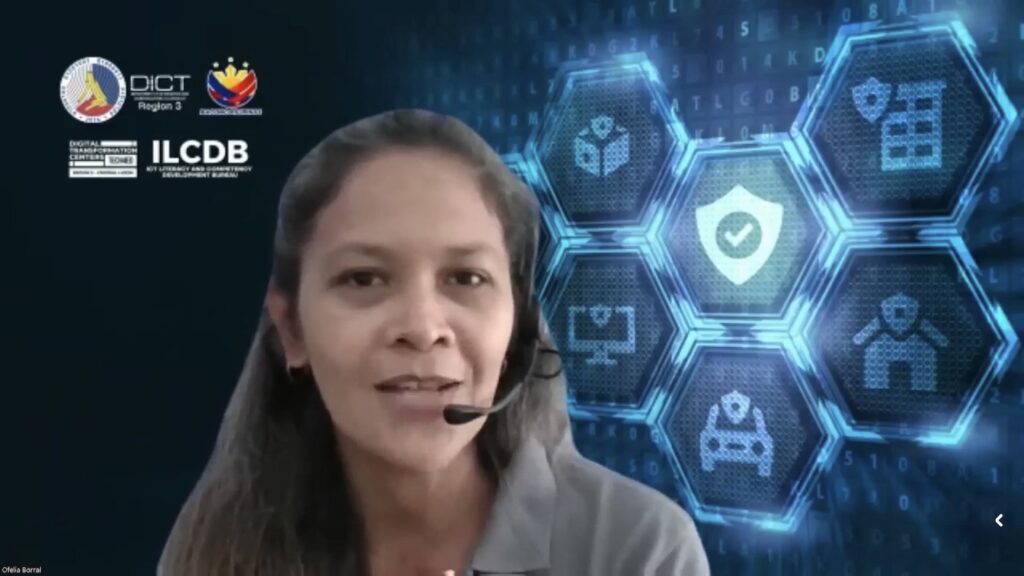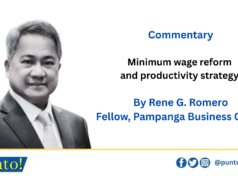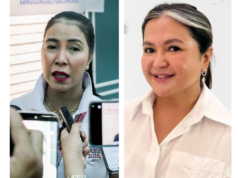In a world where information travels faster than ever, being connected online has become a defining part of how young people learn, express themselves, and engage with others.
Yet, along with these opportunities come challenges such as information pollution, online scams, and cyberbullying that threaten not only digital safety but also truth and trust in the virtual space.
Recognizing the need to empower youth to navigate the evolving digital landscape responsibly, the Philippine Information Agency (PIA), in partnership with the Department of Information and Communications Technology (DICT) Central Luzon, organized the Aurora and Bataan leg of the Kilos Kabataan: Unite for a Digital Safe Future virtual youth forum.
Now in its 9th season, the program focuses on promoting media and information literacy and responsible digital citizenship, serving as a platform for young Filipinos to gain awareness, values, and practical skills to make the internet a safer and more inclusive space.
Around 130 students from Limay Polytechnic College, Microcity College of Business and Technology, City of Balanga National High School–Senior High School Department, and Aurora State College of Technology joined the forum, learning from resource persons who champion digital safety and media literacy.
Understanding media and information literacy
In today’s digital world, young people are constantly exposed to vast amounts of information, making it essential to distinguish between accurate facts and misleading content.
Media and information literacy equips the youth with skills to critically evaluate what they read, see, and share online.

PIA Assistant Regional Head Carlo Lorenzo Datu underscored that dealing with information is like handling a powerful weapon that can either build communities or cause harm, depending on how it is used.
“Dealing with information, kapag nagamit mo siya ng tama, mapapabuti ang komunidad. Kapag nagamit mo ng mali, it can cause disruptions and divisions,” he said, noting that social media, while a platform for expression and empowerment, must be used responsibly.
Social media allows every Filipino to express opinions, connect with like-minded individuals, and participate in governance by voicing concerns and suggesting solutions.
At the same time, Datu warned against the rise of information pollution, which includes misinformation, disinformation, and mal-information.
To help the youth identify fake news, he shared a simple acronym, S.P.O.T., which serves as a guide for critically evaluating the information they encounter online.
Datu explained that Source refers to verifying whether the source of the information is valid and legitimate, while Purpose involves assessing the intent behind the post, determining whether it aims to inform, mislead, or damage reputations.
Ownership requires identifying who created the information and whether they are credible and trustworthy, and Time emphasizes checking when the content was posted and whether it remains relevant.
By applying the S.P.O.T. method, young people can avoid spreading false or misleading content and contribute to a more truthful and responsible online community.
He also reminded participants of three key points: they are what they share, responsible sharing of information starts with them, and truth empowers because what they share informs opinions, influences actions, and affects sentiments
Building a cyber-safe generation
The rise of digital platforms has brought new risks, from online scams to cyberbullying, highlighting the need for youth to develop practical cybersecurity habits.
Protecting personal information and understanding how to respond to threats are crucial skills for navigating the digital space safely.

DICT Central Luzon Digital Transformation Center Manager Engineer Ofelia Borral highlighted Click. Think. Protect., stressing the need to click smarter, think critically, and protect oneself and others online.
“Cybersecurity matters to every Filipino youth because we are all connected at some point. By knowing its importance, we can protect our digital lives from risks such as online scams, cyberbullying, and data breaches,” she explained.
She noted that one in two Filipino youth has experienced online harassment, with Facebook remaining the most widely used platform, leaving many users vulnerable to scams.
To protect themselves and others, students were encouraged to enable two-factor authentication, create strong and unique passwords, think before posting, report fake accounts and suspicious messages, block strangers requesting personal information, avoid oversharing, and fact-check content before sharing.
Practical advice on responding to cyberbullying included avoiding replies to aggressors, keeping evidence through screenshots, and reporting incidents to trusted adults, school authorities, or the DICT Cybercrime Office.
“Every young person can contribute to a cybersafe environment by being a cyber smart champion. We should build a cybersafe generation and start with us, where no one fears being online, no bullying is tolerated, and everyone helps each other,” she said.
Youth voices for a safer digital world
Youth engagement is essential for shaping a responsible online culture. By actively practicing digital literacy and responsible behavior, young people can influence their peers and create safer digital communities.

Microcity College of Business and Technology Campus Student Government President Jheiiare Afable emphasized the youth’s crucial role in shaping a responsible digital culture.
“In this age where our lives are deeply connected to the digital world, being online has become part of who we are. But while technology opens doors to learning and connection, it also brings challenges. That is why today’s forum is important. It reminds us that being digitally active also means being digitally responsible,” he said.
Afable encouraged fellow youth to “think before you click, verify before you share, and care before you comment,” reminding everyone that the strength of the youth lies not only in their ideas but in their collective action, both online and offline.
Meanwhile, Aurora youth participant Bonifacio Olit expressed appreciation for the initiative and highlighted its value in strengthening youth awareness.
“This forum opened our eyes to the importance of being cautious online. Kailangan nating kumilos. Let’s make our voices heard and use our platforms responsibly because we don’t know what everyone else is going through. Piliin natin maging mabuti at maging source of truth and inspiration sa bawat isa. We have the power to make the internet a better and safer space for us and for the next generation,” Olit shared.
Indeed, responsible digital citizenship is not merely about navigating the online world safely; it is a journey of awareness and discernment, a journey that empowers the youth to think critically, share truthfully, and use technology to uplift and connect.
As we move forward in the digital age, let us remember that every click, every post, and every share carries the power to shape a safer and more inclusive online world. (CLJD/RPQ, PIA Region 3-Bataan)





